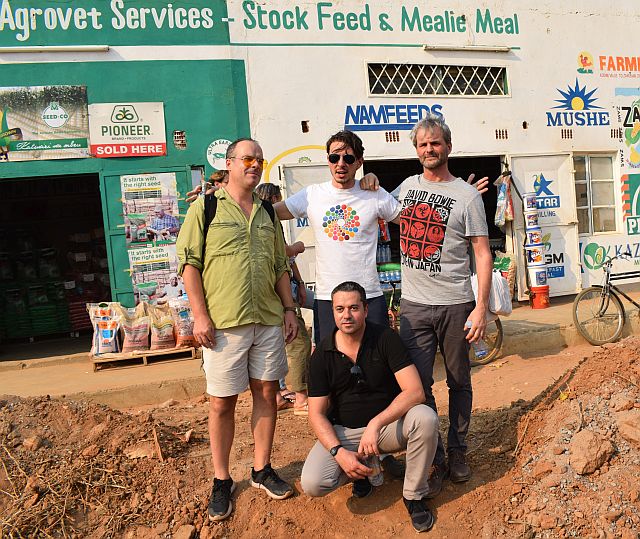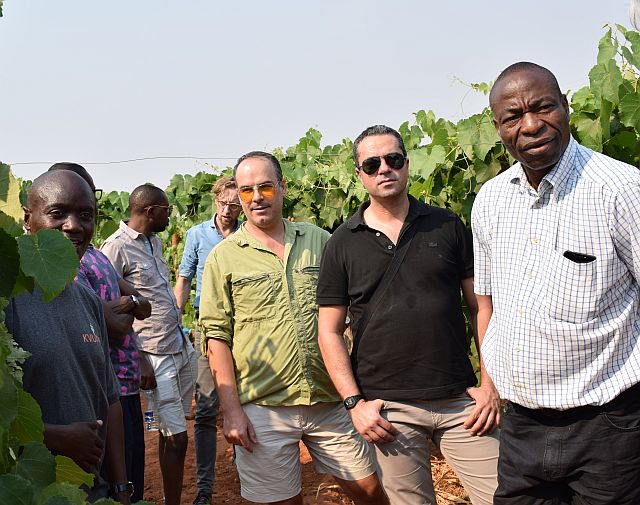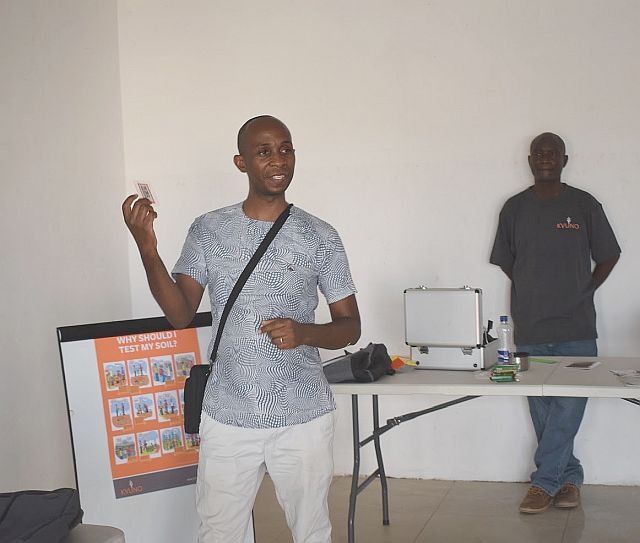Not bitcoin
Bitcoin may be the most (in)famous digital – or complementary – currency around, but it is very different from other, community-focused schemes. These schemes issue physical or digital tokens which are only valid in their local area.
These alternative currencies are not meant to substitute dollars, euros or other legal tender. Instead, they encourage the trade of underused assets in communities. They can also help communities retain their assets: the tokens are only accepted by neighbourhood businesses, so people in the scheme are stimulated to go to them.

The Qoin team at an input supplier during the alternative currency workshop
Alternative track record
To explore their potential, Solidaridad hosted a five-day workshop in Lusaka, Zambia, in November 2019. It was organized by Qoin, a foundation which has a significant track record in building complementary currencies, and has had some notable successes, such as the Bristol Pound.
The workshop brought together teams from Solidaridad’s D3S, Impact Investment and Gender departments in Africa and Asia, and participation from Jeroen Douglas, Solidaridad’s executive director. After some exercises that clarified the impacts of different means of value formation and circulation of currency, the group explored how digital currencies could help Solidaridad deliver on its mission and objectives.
Incentivizing good practices
Participants were eventually separated into three teams to work on propositions that would make sense for the organization. One team explored the Southern Africa Zwardy programme. Zwardy is a rewards scheme for farmers, which aims to incentivize their participation in programme activities, and reward adoption of good practices.
Another team focused on designing a proposition for investment in upgrading the local supply chain upgrading in the Democratic Republic of Congo. And the last team looked at a data-sharing platform that could replace current auditing systems with a more inclusive and transparent blockchain system.

Visiting a farmer to see how alternative currencies could add value
Out in the field
The teams made a joint field visit to one of the Zwardy project sites near Lusaka. This was an important opportunity to meet farmers, but also to see how the local economy works, interview local input dealers and visit the local market.
The visit provided insights for the token design exercises that the teams were working on. The work progressed in Lusaka, with each team arriving at clear propositions, and defining initial work plans and budgets to carry them forward.

Shungu Kanyemba, digital innovation manager for Solidaridad Southern Africa, demonstrates a digital soil testing system
The workshop was another step in exploring how new technologies could benefit smallholders, and bring more wellbeing and sustainability to smallholder farming.
